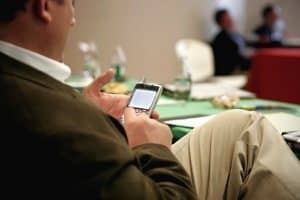
You are of course all too familiar with this all too common occurrence: You're giving a spectacular presentation, the audience is breathlessly hanging on your every word, you are about to make the major dramatic point of your presentation and…
Someone’s cell phone starts playing a tinny arrangement of “Thriller.”
For any presenter, the errant cell phone noise has become a fixture of modern life as people do forget to turn them off sometimes. It's an occupational hazard.
Take Control
The first and most obvious fix is to make an announcement before a presentation reminding everyone to turn off their cell phones. You’re probably doing that already, but may I be so bold as to suggest remembering to do it after every single break, because everyone the audience has turned their cell phones back on the check their messages. Also, when making the announcement, don’t go right into something else and distract people from doing all the pushing and selecting that is required to show off their cell phone.
That said, a cell phone going off in the middle of a presentation doesn't have to be a totally negative awkward situation. A little thought and planning will go a long way in dealing with this problem, even turning it to your advantage.
I spoke to a group the other day, and someone’s cell phone went off in the middle of my presentation. I was amused to discover that the group had a policy that if a cell phone went off during a presentation, they had to pay a fine of five dollars. The group was actually happy the cell phone went off, because it meant they got a contribution to their scholarship fund. It’s a policy worth exploring, if yours is the kind of group that does that sort of thing.
My approach to the interruption of a cell phone is that I don’t want to be distracted or let the crowd feel that I've lost control the situation. Ideally, I would love to ignore the noise the same way I ignore someone coughing or sneezing, but the noise distracts everyone in the crowd, as they are well aware that I may be distracted and the cell phone owner may be very embarrassed. We all know that they've done something somewhat rude and inconsiderate, and it becomes even more of a distraction when we think that perhaps this person may somehow be punished for their transgression.
Now when a cell phone goes off, typically the person who owns the phone is embarrassed and vulnerable. There are two situations to be considered here.
Respect
If the audience is composed largely of people who do not know each other, then as the presenter, one must understand that they are embarrassed and vulnerable and you can’t treat them like a regular heckler. In that situation, one might say “Oh, don't be embarrassed. That’s nothing. I forgot to turn my cell phone off yesterday, and my flight landed in Reykjavik.”
I don’t believe in ignoring cell phones. I believe it's incumbent upon me as the controller of the stage to address it. Sometimes I’ll say something like “If that’s my girlfriend, tell her I’m not here.” The point of making a joke about it is to make the point that I’m not upset or offended by the cell phone going off. After all, phones ring all the time in your house and no one thinks it’s a terrible thing that has happened. So I demonstrate that the phone going off doesn’t bother me. In fact, we all know it is going to happen to sooner or later, so there's no excuse for not being ready for it. It’s the sense of sin that gives it its power.
Ad Lib
Now if the audience is a group of people who all know each other and meet regularly, this gives you a little more leeway in teasing the person whose phone went off. I pride myself on ad libbing a response depending on the sound of the ring tone, but here are a few favorite comebacks that you are free to use:
- I can name that tune in three notes (it’s amazing how many people get this reference to a 1950s TV game show).
- [If it’s a really bad ringtone, said in a helpful way:] You know, they sell ringtones…
- I played that recording. I just made 7 cents.
- Sigh. You’re just so popular. No one ever calls ME anymore.
- How did you get a signal in here? I got nuthin. Lousy [name your cell provider].
Those are just some generic ones. The most fun is when I come up with a perfect ad lib in response to a specific song. If you handle cell phone heckling well, instead of everyone feeling awkward or embarrassed, you can gain ever more audience admiration and respect.
Photo by P Wei | iStockPhoto.com
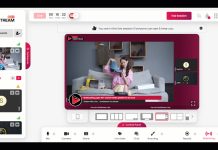
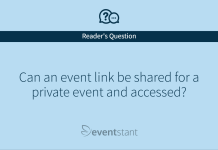


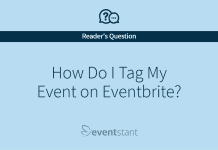
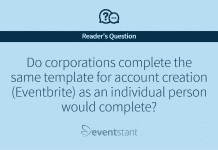



![How Important Are Face to Face Meetings [INFOGRAPHIC]](https://eventstant.com/wp-content/uploads/faceToface_v11-sm-218x150.jpg)









